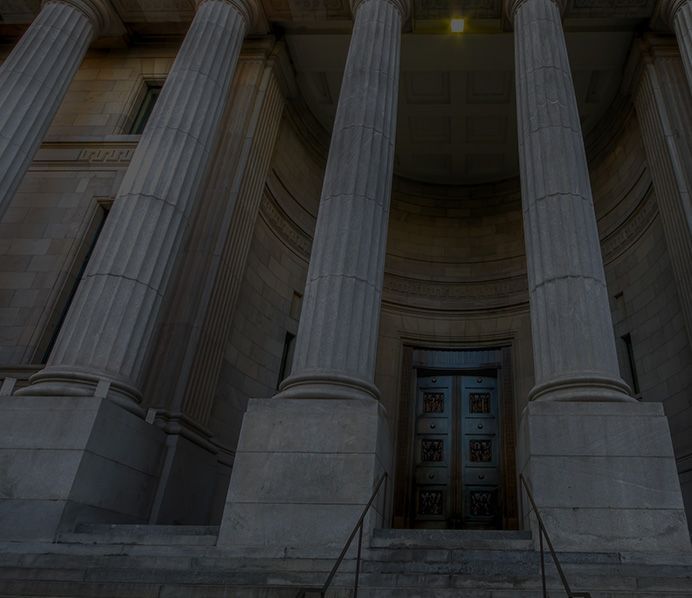Contact Us
Phone: 909-490-4170
Location
10722 Arrow Route
Suite 716
Rancho Cucamonga, CA 91737
Hours
- Mon - Fri
- -
- Saturday
- -
- Sunday
- Closed
How to Get Your Loved One Out of Jail | Law Office of Robert Little

HOW TO GET YOUR LOVED ONE OUT OF JAIL
By Law Office of Robert Little | January 26, 2018
The first thing a criminal defendant’s family asks is, “Can you get our loved one out of jail?” At this stage, the defendant is being held in jail on bail in conformance with a bail schedule. However, that family can save much money on bail if their lawyer immediately seeks a lower bond (or release their recognizance).
Although bail reform in California is still on the horizon, there are excellent arguments for a bail dramatically lower than the county bail schedule or release on its recognizance.
First, a judge’s “bail schedule” is arbitrary and capricious. Second, setting an unaffordable bail violates the Eighth Amendment. Third, the only legal basis for setting bail is a flight risk.
And remember: “In our society, liberty is the norm, and detention before trial or without trial is the carefully limited exception.” United States v. Salerno (1987) 481 U.S. 739.
For more information, schedule your free consultation today.
Bail Schedules
Every county’s judges create a bail schedule. They are for jail deputies, who must set a bond on the fly without knowing the defendant’s particular situation. Sometimes this is incorrectly referred to as “statutory bail”; bails pre-set by statute would be illegal.
The bail schedule authorized in Government Code sec. 72301 (bail accepted by the court clerk) and Penal Code sec. 1269b (bail accepted by a custodial officer).
However, once the prisoner does appear before a magistrate, it is the magistrate’s constitutional duty to fix bail in an appropriate amount based upon factors relevant to that individual prisoner and not upon any fixed schedule.
As the Supreme Court stated in Stack v. Boyle (1951) 342 U.S. 1, 5, the factors relevant to a determination of the appropriate amount of bail “are to be applied in each case to each defendant.” Bail set solely by reference to a non-tailored schedule is therefore not set in conformance with the requirements of the United States Constitution.
There is no case in California permitting the use of a bail schedule by a magistrate in fixing the amount of bail for a defendant appearing before such magistrate.
No California case has yet directly addressed the constitutionality of such a system.
However, the use of a bail schedule in such a manner has been found improper in other jurisdictions, including federally and in state situations by the United States Department of Justice, Amicus Curiae Brief in Walker v. City of Calhoun (Georgia) (2016) 11th Circuit case no. 16-10521-HH, filed August 18, 2016, and by the San Francisco City Attorney and Sheriff.
If a court relies upon the “bail schedule” in fixing the bail amount and not upon the constitutionally relevant factors, then the court acts arbitrarily and capriciously.
Bail Must be Affordable
Once the release is deemed appropriate, “[b]ail set at a figure higher than an amount reasonably calculated [to ensure the defendant’s presence at trial] is ‘excessive’ under the Eighth Amendment.” Stack v. Boyle (1951) 342 U.S. 1, 5 [emphasis added], cited app. in Salerno, supra, at 752-755, see also Art. 1, Sec. 12, next to the last para., People v. Ormiston (2003) 105 Cal.App.4th 676, 688.
The Eighth Amendment applies to the states. “The Eighth Amendment provides: ‘Excessive bail shall not be required….’ The provision applies to the States through the Fourteenth Amendment.” Roper v. Simmons (2005) 543 U.S. 551, 560 [citing many cases]; see also Schilb v. Kuebel (1971) 404 U.S. 357, 365, cited app. on that incorporation point in McDonald v. Chicago (2010) 561 U.S. 742, fn. 12 [130 S.Ct. 3020, 3034-3035, fn. 12].
Therefore, counsel should prepare to present facts specific to the defendant’s ability to afford bail at a bond hearing. For example, multi-state killer Robert Durst skipped a $250,000 bail, obviously insufficient. However, that same bail would be unconstitutional if set for a middle-class defendant unable to post the premium.
Risk of Flight is the ONLY Basis for Setting a Bail
Two California propositions effectuate bail rules. Both Proposition 4 and Proposition 8 were on the June 1982 ballot. Because Proposition 4 got additional votes, it became the operative law in California as Art. I, sec. 28 of the California Constitution. Proposition 4 made the risk of flight the only criterion of the setting of bail, consistent with prior state law; Proposition 8, which never took effect, included other factors, such as “public safety.”
“Because Proposition 4 received a greater number of votes, the bail provisions of Proposition 8 never went into effect.” People v. Barrow (1991) 233 Cal.App.3d 721, 723, cited app. People v. Cortez (1992) 6 Cal.App.4th 1202, 1211; In re York (1995) 9 Cal.4th 1133, 1140, fn. 4, People v. Standish (2006) 38 Cal.4th 858, 874-875. (See also editor’s notes following, respectively, Article I, section 12, and Article I, section 28, of the California Constitution in the West’s Annotated Codes rendition.) That is, the Article I, section 28, provisions regarding bail was and is a nullity.
Therefore, only the criteria contained in Article I, section 12, of the California Constitution (and only those not inconsistent with the Eighth Amendment) are a flight risk. (Pen. Code §§ 1270, 1275 to the contrary notwithstanding, as violative of the Constitution.) There is no “public safety” criterion recognized in section 12. That is, the sole criterion remains that of the likelihood of appearance. Van Etta v. Scott (1980) 27 Cal.3d 424, 438, citing Underwood; In re Samano (1995) 31 Cal.App.4th 984, 992.
See, e.g., Ormiston, supra at 688 [emphasis added], citing many cases: “The sole issue at a bail or OR hearing is whether the detainee will appear for subsequent court proceedings if released, and the sole purpose is to ensure the defendant’s attendance in court when it is required.”
Conclusion
Bond hearings are contested hearings before a neutral magistrate. Counsel should prepare to argue that using a bail schedule would be arbitrary and capricious that the bail must be affordable to the particular defendant before the court. That flight risk is the only criterion for the calculation of bail.
Contact us today to get started on your case.


Contact Attorney Little Today
For A Free Consultation
Homepage FCE Form
We will get back to you as soon as possible.
Please try again later.
By submitting this form, you agree to be contacted by our law firm, either by phone, text or by email.
Disclaimer: The information on this website is for general information purposes only. Nothing on this site should be taken as legal advice for any individual case or situation. This information is not intended to create, and receipt or viewing does not constitute, an attorney-client relationship.
All Rights Reserved | Law Office of Robert Little | Powered By Convert It Marketing | Privacy Policy
All Rights Reserved | Law Office of Robert Little | Powered By Convert It Marketing | Privacy Policy








